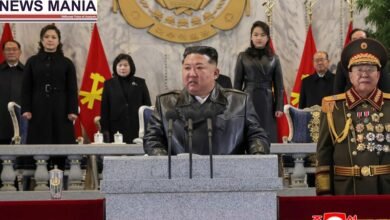Pacifist Japan Announces Its Largest Military Expansion Since World War II

As regional tensions and Russia’s invasion of Ukraine fuel war worries, Japan on December 16 unveiled its largest military buildup since World War II with a $320 billion plan that will buy missiles capable of striking China and prepare it for sustained battle.
His government is concerned that Russia’s precedent-setting actions could inspire China to attack Taiwan, endanger the adjacent Japanese islands, block the flow of advanced semiconductors, and possibly close off sea routes that transport oil from West Asia.
The government stated it will also stockpile spare parts and other armaments, increase transportation capacity, and develop cyber warfare capabilities in the expansive five-year plan, which was previously unthinkable in pacifist Japan. Japan handed up the ability to wage war and the means to do so in its post-war constitution, which was written by Americans.
China, Russia, and North Korea were mentioned in a different national security plan document that promised tight cooperation with the US and other like-minded countries to thwart threats to the existing international order.
On December 16, Taiwanese President Tsai Ing-wen expressed her expectation for increased defense cooperation with Japan.
An inquiry for comment was not immediately answered by the Chinese foreign ministry.
At the turn of the century, Chinese defense spending surpassed that of Japan, and the country currently has a military budget that is more than four times bigger. According to insiders, Japan’s most pressing issues include a scarcity of bombs and spare parts that renders planes and other equipment inoperable.
With Kishida’s plan, defense spending will more than quadruple to 2% of GDP over five years, exceeding a self-imposed ceiling of 1% set in 1976. Based on existing budgets, it will make Japan the world’s third-largest military spender behind the US and China and expand the defense ministry’s budget to almost a tenth of total public spending.
This spending spree would provide Japanese manufacturers of military equipment, such as Mitsubishi Heavy Industries, jobs. Mitsubishi Heavy Industries is anticipated to be in charge of leading the development of three of the longer-range missiles that will be a part of the new missile force. Additionally, foreign businesses will gain.
News Mania Desk






